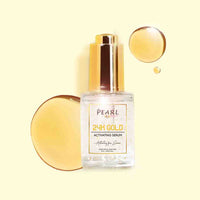Collagen is an essential protein that gives strength to your skin, structure and elasticity. As we age the production of collagen declines making the skin saggy, forms wrinkles and fine lines. But we are fortunate to have several effective methods to support collagen production in the body through exercises to diet, sunscreen, and over-the-counter creams. We shall explore multiple options in simple terms to help you take care of your skin and slow down collagen loss.

-
Exercise: Keeps Your Skin Firm and Healthy
One of the best ways to support our body health is through exercise. When we exercise, the blood flow increases that supplies nutrients and oxygen to the entire body including skin. The increased blood circulation boosts collagen production and keeps the skin look young and beautiful.
Facial exercise can be advantageous too as facial muscles can benefit from exercises to make the skin firm. There are multiple gentle exercises like lifting your eyebrows, pressing your fingers on your cheeks and making fish faces or stretching your lips to improve circulation and skin tone.

Cardio exercises, walking, running and cycling help in the long run with increased blood circulation by delivering essential nutrients to the skin and supporting collagen production.
-
Diet: Foods That Boost Collagen
The food we eat also plays a huge role in how your skin ages. Foods contain nutrition that supports collagen production to fight collagen loss.
Vitamin C-rich foods
Vitamin C is known to be powerful antioxidants that enhance the collagen production in the body. Oranges, strawberries, bell peppers, broccoli and kiwis are known to be excellent sources of Vitamin C.
Protein
Collagen is made from amino acids, found in protein and eating protein is crucial, it supports collagen production. Chicken, fish, eggs, tofu and beans are very good sources of protein.
Bone broth made from boiling animal bones and connective tissues, contain collagen that replenishes the lost collagen from your skin over time.
Omega-3 fatty acids
Salmon, walnuts, chai seeds and flaxseeds are very important for skin health as they contain healthy fats. Also Omega-3s helps to maintain the skin elasticity and hydration.
-
Sunscreen: Protect Your Skin from UV Damage
Sun damage is one of the biggest reasons for collagen breakdown. The sun’s UV rays break down collagen in the skin leading to skin sag and wrinkles formation. To protect the skin from UV rays, a sunscreen with SPF 50 acts as shielding even on cloudy days. Apply the sunscreen generously on the exposed skin area. It’s good to reapply every two hours, especially when exposed to continuous sunlight or when you are sweating or swimming. Wear protective clothing and hats to reduce sun exposure.
-
Vitamin D: Essential for Skin Health
As discussed above, Sun’s UV rays break down the collagen, but sunlight is still important for your health for Vitamin D production. Vitamin D plays a key role in collagen production and its deficiency negatively affects the skin.
For healthy vitamin D levels, try to get moderate sun exposure for 10-30 minutes a few times in a week, depending on the skin type and location. Fatty fish like salmon and mackerel, egg yolks and fortified dairy products are good sources of vitamin D.
-
Over-the-Counter Creams: Skin Care Solutions
There are many counter creams and serums that stimulate collagen production and reduce the appearance of wrinkles. Choose products that contain following ingredients
Retinol
Retinol or vitamin A is the most effective ingredient to stimulate collagen production and speeds up the skin turnover and promotes the production of new skin cells.
Peptides
Peptides are proteins that stimulate collagen production and most of the age defying creams use peptides as an ingredient to help your skin produce more collagen and enhance the skin texture.
Hyaluronic acid
Hyaluronic acid is a very good moisture retainer in the skin which plumps the skin to look young by vanishing the fine lines and wrinkles. Although it doesn’t directly support collagen production, the plumpness on the skin fades the skin issues.
Vitamin C
Vitamin C is a powerful antioxidant that boosts collagen production, so look for serums, creams and lotions that contain stable forms of vitamin C for the best results.
Final Thoughts
Collagen loss is a natural aging process but there are multiple ways to get treated of collagen and keep the skin healthy. Regular exercise, collagen boosting diet, daily usage of sunscreen, sufficient intake of vitamin D and multitude over the counter creams, lotions help to preserve your skin’s strength and elasticity. Inculcate a proper skincare routine to maintain your appearance for the years to come with luminous skin glow by reducing the signs of aging.
Taking care of your skin today is to achieve a better skin tomorrow. It’s never too late to incorporate these tips that boost the collagen levels to enjoy healthier, vibrant skin!










